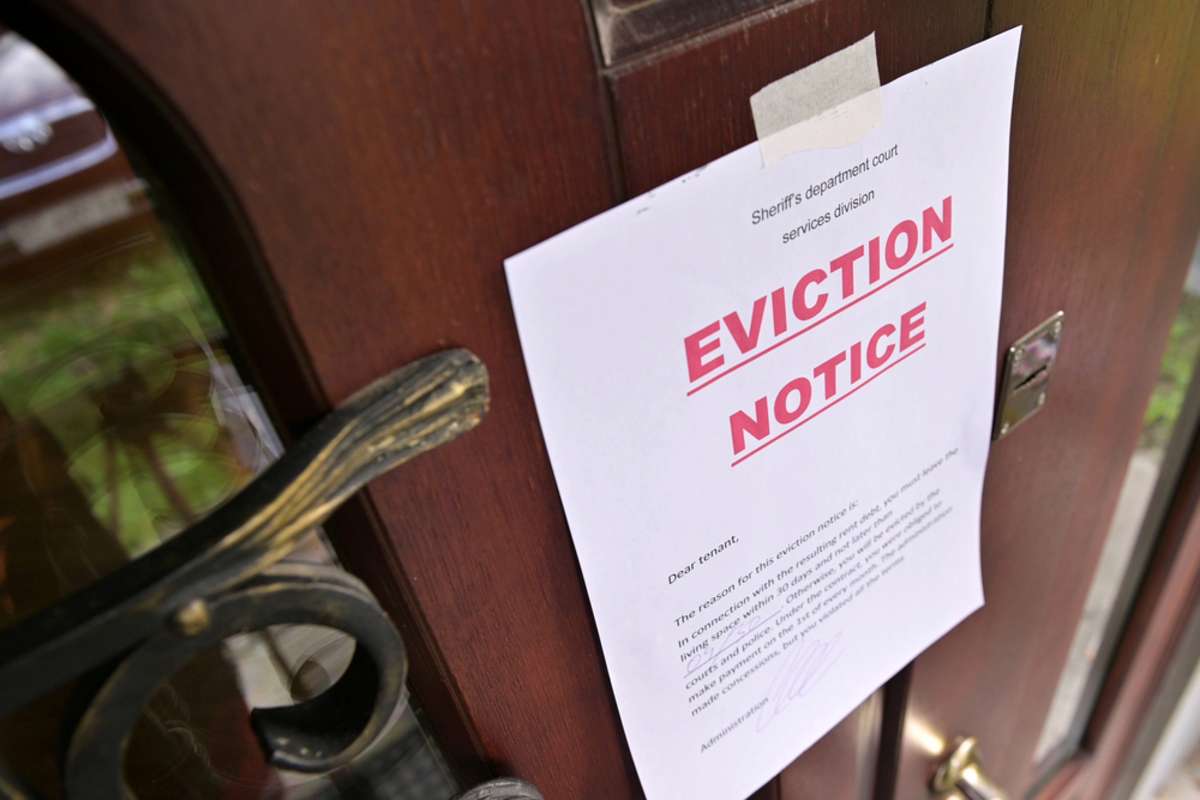Listen to the article
Michigan Eviction Process: Key Steps and How to Stop Eviction in Michigan
Published November 17, 2017. Updated September 7, 2023.
As a Detroit property management company, it's important that we understand what's involved in evicting a tenant within the state of Michigan — especially for owners searching for reliable guidance on how to stop eviction in Michigan or navigate the process legally.
In Michigan, a landlord cannot evict a tenant from the property or attempt to repossess it on their own. According to Michigan eviction laws, the only legal eviction that can take place is one ordered by the court.
Additionally, if a landlord attempts to evict a tenant on their own or even shut off their utilities, it could result in the renter successfully suing the landlord in court for damages.
An authorized police officer or county sheriff can legally remove an evicted renter from a property, but only if a court order has been issued to do so. So, what can property owners do to get a court-ordered eviction for a bad tenant? Keep reading for our expert insights into the eviction process.
Legal Reasons to Evict a Tenant
The law recognizes various reasons for a landlord to legally evict a tenant in Michigan. They include:
-
Failure to pay rent, whether on purpose or unintentionally
-
Posing a serious and continuing health hazard to the property
-
A termination of the tenancy
-
Overstaying a lease or "holding over"
-
Causing substantial and continuing physical damage to the property
-
Violating a term of the lease that will lead to eviction
-
Involvement in illegal drug activity on the residence
-
"Just cause" for evictions from mobile home parks or federally-subsidized housing
If you have any of these issues with a tenant, you likely have a legal reason to start the eviction process.
How Does the Eviction Process Work?
As we mentioned, property owners cannot remove a tenant from a property on their own or remove belongings and change the locks to force a renter out without facing serious legal consequences. There is a specific eviction process and time frame that must be followed in the state of Michigan.
Serving a Tenant with an Eviction Notice in Michigan
To begin the eviction process, Michigan landlord-tenant law requires a landlord to serve the tenant with a legal notice of eviction. This Michigan eviction notice must inform the renter of the reason they must move out of the property and the deadline for moving.
If the reason for eviction is due to non-payment of rent, then the notice of eviction you must serve a tenant is called a 7-day Demand for Nonpayment of Rent. This document notes that seven days is the length of time a landlord should take before filing the next stage of paperwork. This eviction form is specific to the State of Michigan and can be obtained from the state website.
On the other hand, if the reason for eviction is due to a lease violation or because the rental or lease agreement has ended and the tenant refuses to leave, a different legal notice is served. The landlord must give the renter a 30-day Notice to Quit. This form is also specific to the State of Michigan and can be obtained from the website as well.
Michigan eviction laws also allow a landlord to give the renter a 24-hour notice. This notice is only applicable if a formal police report is filed claiming that the renter has unlawfully or illegally manufactured, delivered, or possessed with intent to sell a controlled substance on the premises in question.
The notice of eviction must contain the following information:
-
Address of the rental property
-
Date of the notice
-
Name of the renter/tenant
-
Reason for eviction
-
Time for compliance
-
Signature of landlord
The notice can be handed over to the tenant personally or to a member of the tenant's family who is of suitable age and who must be advised to deliver it to the tenant. It can also be sent to the renter via mail. If the notice is mailed, then the notice period is set to begin the first day it's mailed, excluding holidays and weekends.
Filing and Serving the Summons and Eviction Complaint
If a tenant decides to pay their rent or fix the issue at hand, the eviction notice may be canceled, and the landlord will no longer find it necessary to file an eviction complaint. However, if the tenant fails to meet the notice requirements, the landlord will be forced to file a summons and an eviction complaint with the court.
A court action may initiate a legal proceeding forcing the renter to move out of the property.
There is a haste legal process included with the eviction process in Michigan. The process is known as "summary proceedings." This legal process was put in place to enable eviction hearings to be scheduled promptly after the landlord first files the eviction lawsuit in court.
To obtain an eviction court hearing, there are several steps that the landlord is required to take.
-
Prepare a summon and complaint
-
File a summon and complaint with the local district court in Michigan.
-
Serve these legal documents to the renter. They must provide notice to the renter concerning the eviction lawsuit, as well as the exact date and time they are to appear for the court hearing.
It's highly recommended that a qualified and experienced landlord-tenant lawyer perform this step. Your lawyer can help file the summons and complaint forms. They will also assist you in the lengthy procedures involved in eviction cases.
Attending the Court Hearing
Michigan landlord-tenant law requires both the landlord and the tenant to attend the eviction court hearing. In the event the tenant loses the eviction lawsuit, they still have about ten days to pay off the past due rent and court costs to nullify the court order.
An order to move will be enforced if no payment or settlement is received.
Should the tenant win, then they will remain on the premises. If a renter fails to show up for a court summon, they will lose their case, even if they have provided a valid defense.
Writ of Restitution
If the tenant continues to occupy the premises in question more than ten days after the judgment was entered, then the court will serve a Writ of Restitution. Once filed, the document must be signed by the judge to be valid.
The court may delegate the eviction to the Sheriff's department or a court officer. The landlord must select a date when the sheriff or court officer is available, which is usually a 1-2 week wait.
The Eviction
Once the court has served the Writ of Restitution, the Sheriff or court officer will allow the landlord to enter the premises and physically remove the renter's belongings. The landlord must change the locks immediately after repossession of the premises.
Unlike in other states, Michigan law does not require landlords to store the renters' property offsite and wait for them to recover it. Instead, they can leave the furniture and appliances on the curb for about 48 hours before disposing of it to finalize the eviction process.
Our Detroit Rental Management Team Handles Evictions In Michigan
If the eviction process feels overwhelming or the legal aspects of being a rental property owner are keeping you from growing your portfolio, Own It Detroit is here to help. We work with property owners dealing with bad tenants and the Michigan eviction process. Our services include working with your attorney, tenants, and the court system to pursue the correct process for removing renters who violate leases.
We also deliver full-service property management expertise for everything from finding good tenants that comply with the lease to property maintenance, financial management, renovations, and more.
If you're dealing with a potential eviction situation now or simply want to improve the quality of your tenants and generate more revenue from your rental properties, reach out to our team to learn how we can help!










